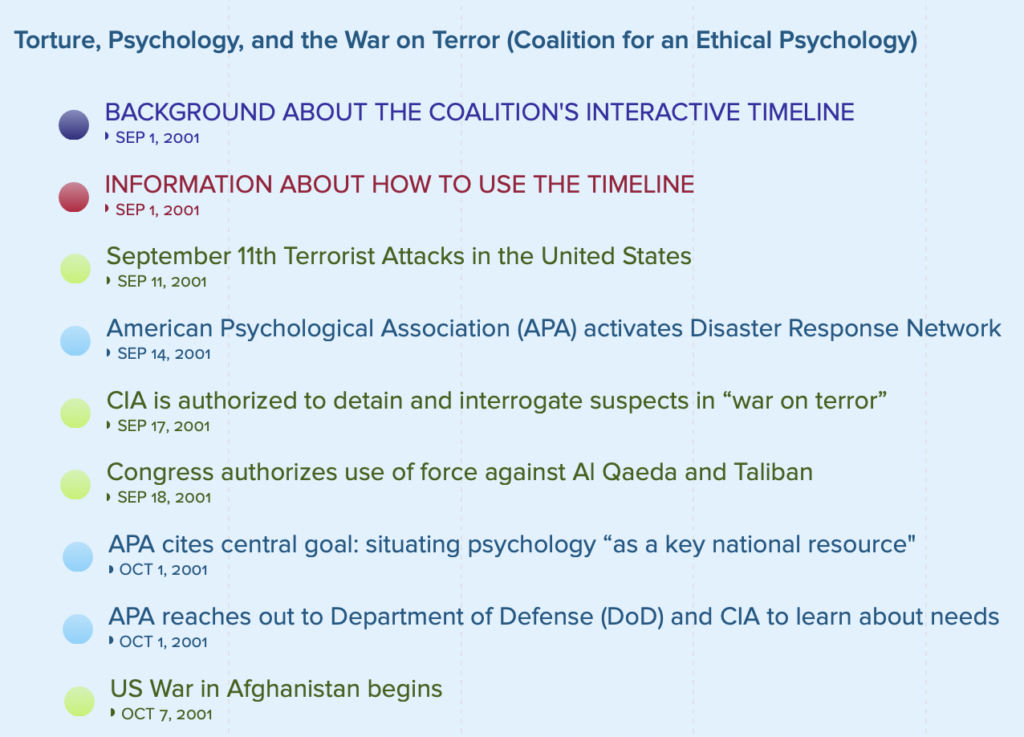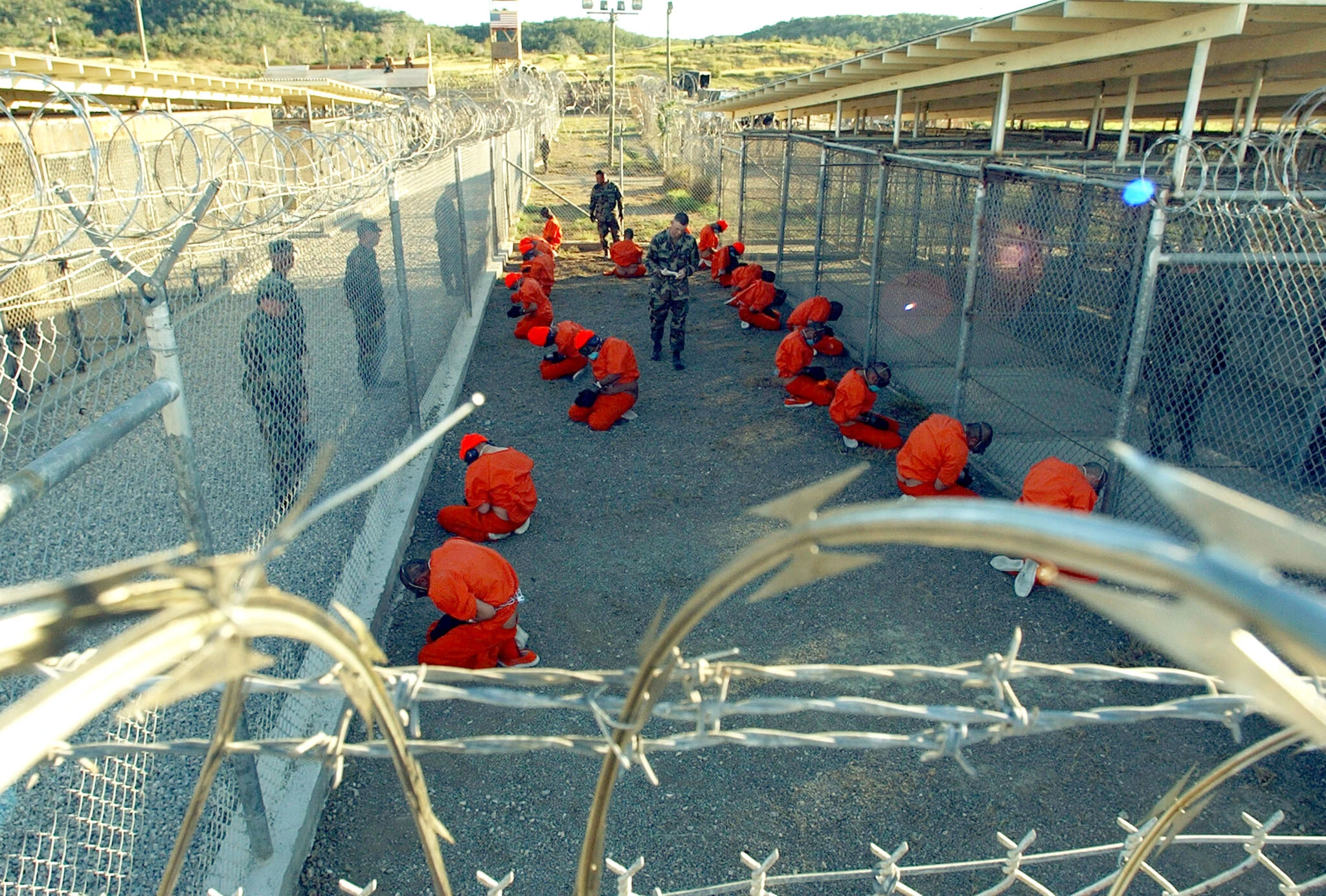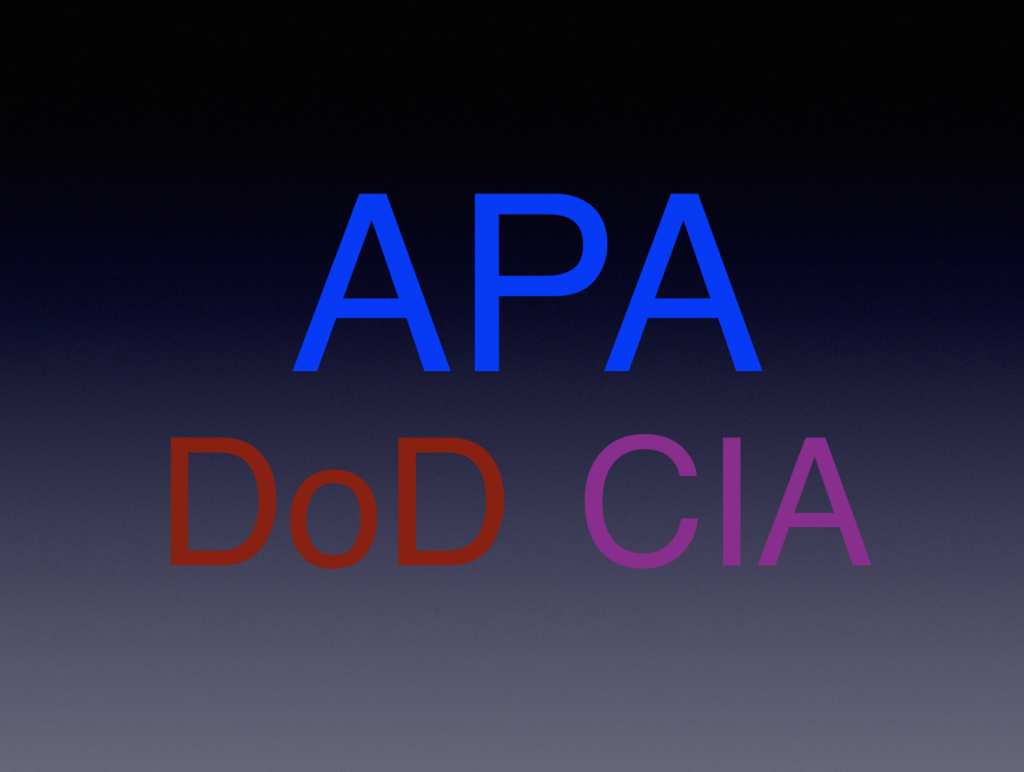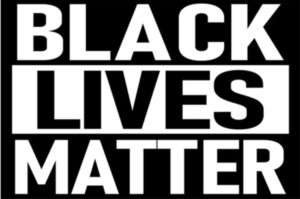
January 11, 2023 marks Guantanamo’s 21st anniversary as a “war on terror” prison where hundreds of men and boys have been subjected to degrading treatment, indefinite detention, and, in some cases, physical and psychological torture.
In my view and that of my colleagues at the Coalition for an Ethical Psychology, one of the defining tragedies of this two-decade era has been the involvement of members of our own profession in the brutal detainee operations that became an enduring symbol of the US government’s abandonment of international law and human rights. Equally disturbing from our perspective, over much of this period the American Psychological Association (APA) repeatedly failed to stand as a firm bulwark in defending the profession’s do-no-harm ethics and in opposing the weaponization of psychology.
Recognizing that the passage of time can dim memory and awareness, especially when powerful forces seem committed to distorting or denying the past, we have created a new interactive timeline — “Torture, Psychology, and the War on Terror.” The timeline identifies dozens of categorized key events, many with hyperlinks for further background, that span the past 20+ years from the terrorist attacks of 9/11 to the present day.
It is the Coalition’s hope that the timeline will be a valuable resource — for those who simply want to better understand what transpired; for those who want to conduct in-depth research; and for those who want to protect the profession and the APA from repeating similar missteps in the weeks, months, and years ahead.
The interactive timeline is available here: http://www.ethicalpsychology.org/timeline/
 This past May, in recognition of the 25th anniversary of the United Nations International Day in Support of Torture Victims, the executive committee of the Society for the Study of Peace, Conflict, and Violence (Division 48 of the American Psychological Association) voted to endorse a brief
This past May, in recognition of the 25th anniversary of the United Nations International Day in Support of Torture Victims, the executive committee of the Society for the Study of Peace, Conflict, and Violence (Division 48 of the American Psychological Association) voted to endorse a brief 


